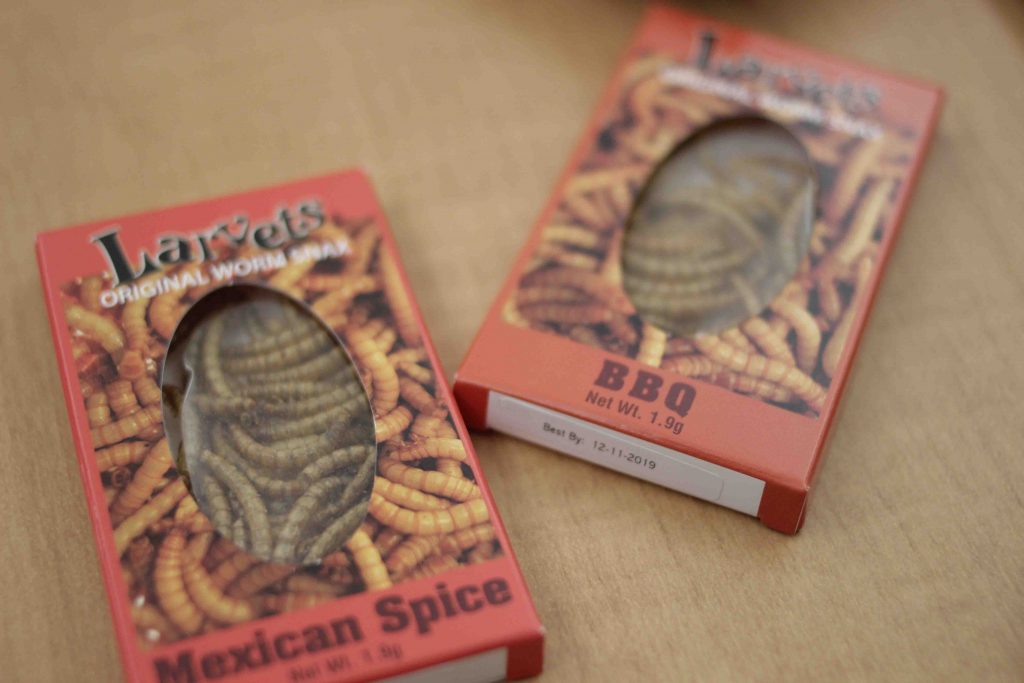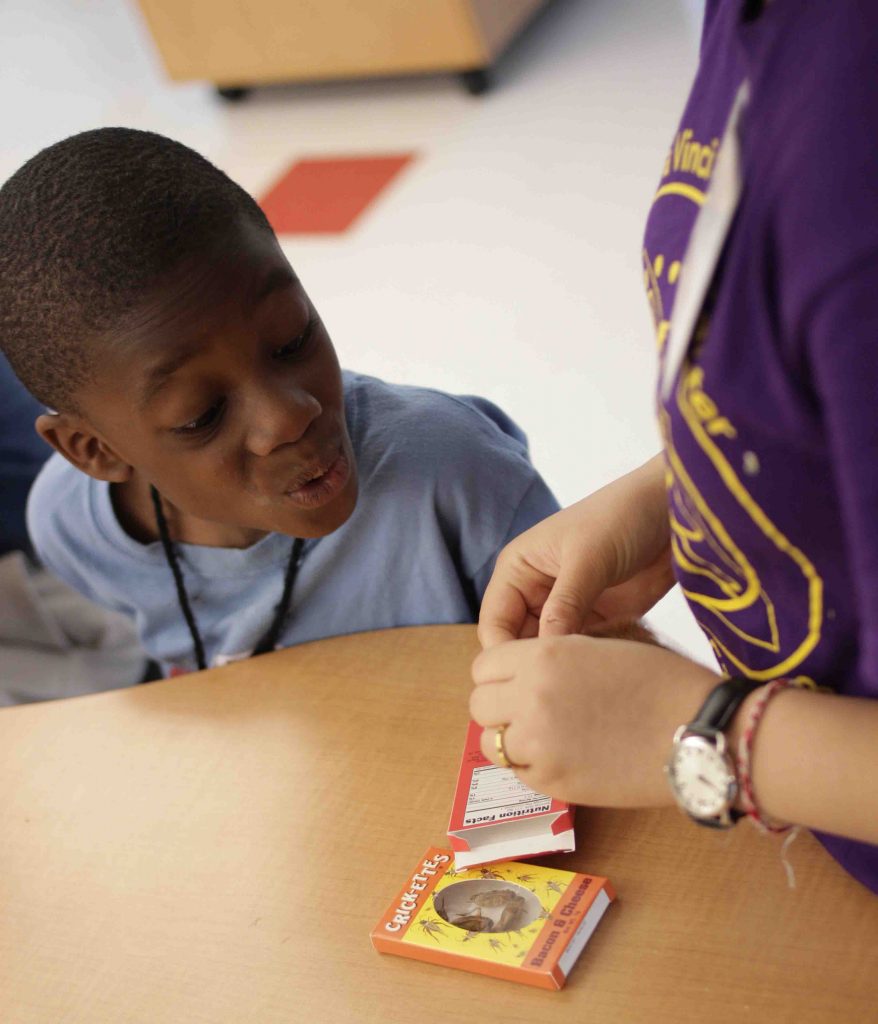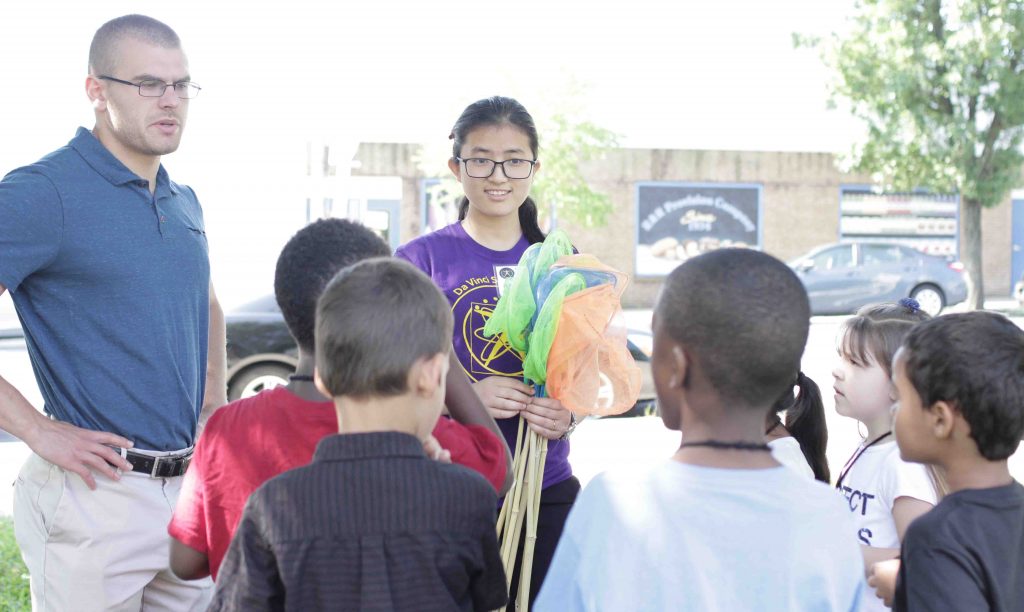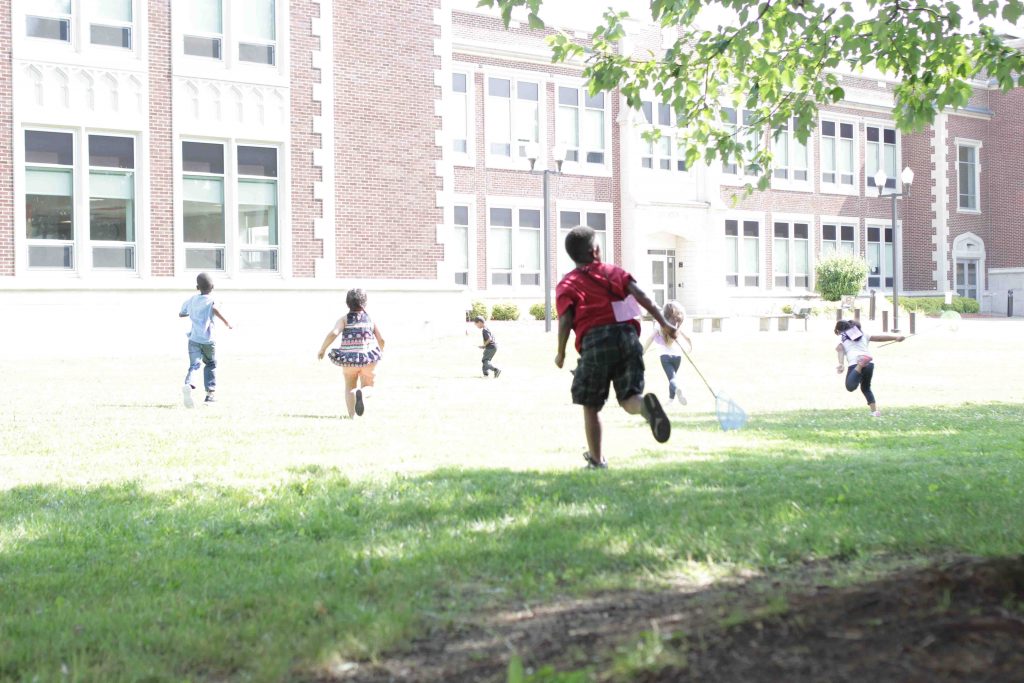Da Vinci Science Center, Lafayette College, and Easton Area School District partner up for summer of learning
Story and photos by Stephen Wilson
Cicadas whirring in the trees. Fireflies turning on their evening lanterns. Ants lining up for a picnic. Summer is full of insects. But not usually filling your plate.
That was the case for a few first-graders at Paxinosa Elementary as they wrapped up a science unit as part of a summer STEM (science, technology, engineering, math) camp.
Students snacked on Chirps, a salt-speckled chip that promises a cricket in every bite. They ate Larvets, the “original worm snack.” And even munched on Crick-ettes.

Think getting your 7-year-old to eat peas is tricky? Well, hold on to your millipedes.
Aidy Ung ’21 is the fearless teacher. For three weeks, she taught campers about insects—their body parts, lifecycle, food chain, characteristics, and benefits. Before moving on to their next big unit on transportation, she thought it would be fun to end the insect unit in a memorable way.
Prior to going on a bug hunt, she brought out boxes of bugs to eat. Of course, they came in delicious flavors, like barbecue, sour cream & onion, Mexican spice, and salt & vinegar.
From Cambodia, Ung knows her way around interesting meals. Crickets are common on her table—as are tarantulas.
She begins the lesson with review, drawing from the campers’ young minds all that they learned over the unit.
“I developed solid goals, understandings, and learning activities for the unit,” she says. “I feel we were in a good shape for daily lesson plans and could adjust them based on students’ interests and the possibility of field trips.”
After the review, she warmed them up with a corn chip. If they could eat it, then they’d be ready for the salty protein-packed cricket chip.
Sort of …
They tried the chip. But the larvae and crickets were not big sellers, until one brave boy took the risk and cried out, “I love those crickets!” Slowly a few other brave souls bellied up to the snack bag. Others still shook their heads with an adamant no.
Ung was unfazed. She is a SHE-CAN scholar, part of an organization whose mission is to equip and empower young women from post-conflict countries to become leaders. SHE-CAN stands for Supporting Her Education Changes A Nation.
She got connected with the STEM camp through the Landis Center for Community Engagement, which focuses in part on enhancing educational outcomes in the community, especially United Way Community Schools.
United Way of the Greater Lehigh Valley is focused on leveling the playing field for schools where students face more barriers to success. The schools become a hub of services that include on-site medical and dental, food banks, clothing closets, and housing resources. The services can help prevent issues that distract from learning.

The summer camp is designed to prevent Summer Learning Loss and even set kids ahead in their reading skills for the school year.
After snacking on the creepy crawlies, students went outside and scoured the lawn for bugs. They carried nets for gentle trapping, something that could contain a bug for a moment in order to review key aspects from the unit.
Campers chased anything that moved including leaves and squirrels, but eventually caught bugs and talked about them.
Ung was pleased.
“This experience has been very beneficial for my personal growth,” she says. “I have learned to work independently and in groups. I have freedom in designing the curriculum while getting constructive feedback. I am inspired by the spirit of the staff at Da Vinci. They are so passionate, dedicated to bringing science to life and prospering the community.”
Her excitement goes down easier than most any bug on the menu.




